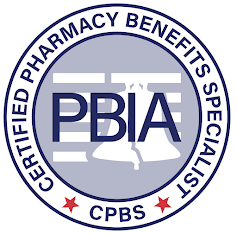Sanofi and Bristol Myers on the hook for $916M in do-over of Plavix marketing case and other notes from around the interweb:
- State Halts GLP-1 Weight Loss Drug Coverage for State Employees. Concerning that costs could reach more than $1 billion over the next 6 years, North Carolina opted to stop coverage for the pricey new GLP-1s, saying the contracts between the drugmakers and the PBMs “are all-or-nothing.” The 750,000 public employees enrolled in the plan now must pay out of pocket if they want to take Wegovy or similar drugs. North Carolina initially wanted to save money by limiting prescriptions to patients who first tried lifestyle management programs to lose weight. However, the manufacturer and the state’s pharmacy benefit manager, CVS Caremark, said the state would have to pay full list price for the drugs unless it agreed to allow all patients with a prescription to get them without any preliminary hurdles, in which case the state could receive rebates amounting to a 40% discount.
- Audit of the American Postal Worker’s Union Health Plan’s Pharmacy Operations. “We found that the PBM overcharged the Carrier and the FEHBP $44,882,688 (including lost investment income) by not passing through all discounts and credit related to prescription drug pricing that were required under the PBM Transparency Standards found in the Carrier’s contract with the OPM. Specifically, our audit identified the following six findings that require corrective action. The findings occurred across all years of the auto scope unless otherwise noted.”
- Amazon is expanding its pharmacy footprint. Amazon’s pharmacy business may be coming into its own as it expands its physical presence and eyes increased revenue from the new class of weight loss drugs. After struggling to find its foothold in the U.S. healthcare market since its launch in 2020, in March Amazon announced a partnership with Eli Lilly to deliver its weight-loss drug Zepbound to consumers and expanded its same-day pharmacy delivery service to New York City and greater Los Angeles. Amazon Pharmacy vice-president John Love told the Financial Times at the time that Zepbound and its rivals are expected to generate “a lot of revenue.” To help support those expanded delivery services, on May 29 Amazon Pharmacy opened its first physical location in California, according to the Los Angeles Press-Telegram. It’s not a normal walk-in store, however. The pharmacy sits next to an Amazon fulfillment center in Corona, California, behind two locked doors, and is meant to facilitate same day deliveries. It’s one of twelve locations nationwide, located in eight states, including New York, Indiana, Texas, and Florida.
- Sanofi and Bristol Myers on the hook for $916M. Hawaii has won more than $900 million in a years-old lawsuit over the blood-thinning drug Plavix, in the largest court award in the state’s history. It’s a victory over two of the country’s largest drug companies, who said they plan to appeal. Plavix was marketed as a drug that could help reduce serious cardiovascular events. But in 2014, a state court found Bristol-Myers and Sanofi sold Plavix in Hawaii for 12 years, even though they knew it did not work on many Asians and Pacific Islanders. Judge James Ashford ruled that Sanofi and BMS knew that there was a risk “that about 30% of patients might have a diminished response to Plavix, but they did not update their label. The defendants created an environment where Hawaii prescribing physicians practiced for more than a decade without the necessary information needed to evaluate the serious limitations of this heart medication,” Ashford added.
